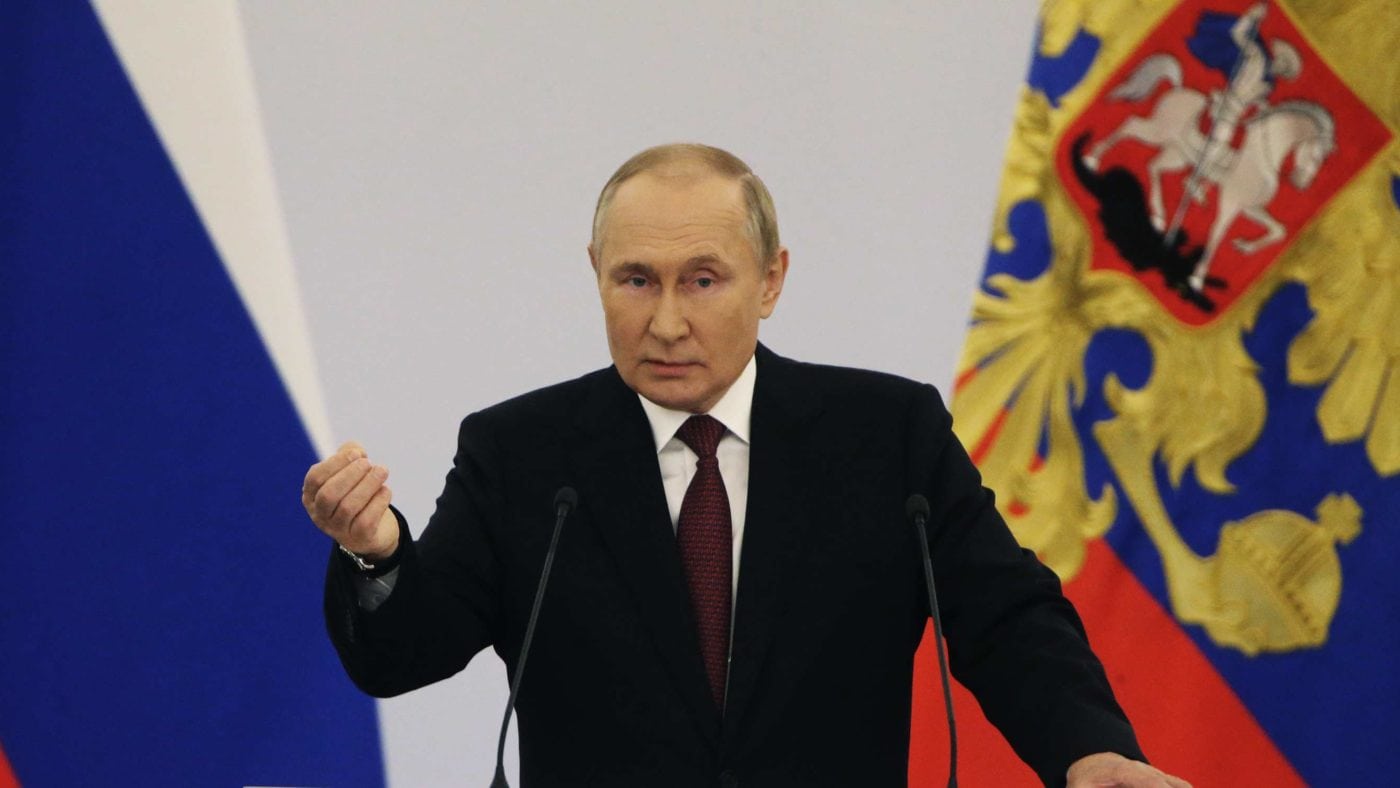Western nations are belatedly re-evaluating their economic relationships and political alliances in the light of Vladimir Putin’s epic act of cultural and geopolitical vandalism.
But the recent decision by the Organisation of Petroleum Exporting Countries (Opec) to slash oil production ahead of the winter shows that this great reset of Western thinking cannot be confined to Russia alone.
Make no mistake, the decision to cut output by two billion barrels a day is going to hurt, pushing up prices just when the Kremlin is deliberately causing havoc on the international markets. Even if the Government steps in to shield consumers, that’s still more money the UK can’t really spare.
But beyond inflicting needless suffering in what looks like it might be a harsh winter, Opec has also thrown a direct lifeline to Vladimir’s creaking war machine.
According to analysis by Saudi Aramco, Russia is actually one of the most expensive countries in the world to produce oil; onshore costs around $44 a drum, and offshore $42. On top of that its main client, China, demands a $35 discount for busting the global sanctions regime. That means that with the right market conditions, it would be quite possible for the profit margin on a huge chunk of Russian exports to fall below zero.
With global prices hitting $90 dollars in September, we were almost there. Had prices fallen just a little further Putin’s army, and the entire corrupt, export-dependent Russian economy, would have been running on fumes.
Now, thanks to Opec’s intervention, prices look set to be propped up through the winter. It’s an extraordinary breach of the global show of solidarity with Ukraine – and it demands a muscular response from the West.
Don’t forget how hard Nato governments have worked to avoid this. Saudi Arabia, the ringleader of the Opec gang, has been flattered by both the UK and the US. Boris Johnson was out there in March, whilst Joe Biden met with Crown Prince Mohammed Bin Salman, Saudi Arabia’s de facto ruler, back in July – shelving a commitment to treat Saudi Arabia like a pariah state – in a bid to increase oil production.
The President’s most senior energy, economic and foreign policy officials have been lobbying Saudi Arabia, the UAE and Kuwait amongst others for months in an effort to mitigate soaring energy prices.
For all that, Opec chose Putin. There’s no economic rationale for the move; propping up costs in the short-term is no good if it triggers a global recession, which it well might. This is a calculated decision by a cartel of autocracies to prop up one of their own.
How we choose to respond will send an important signal to other nations weighing the potential costs of collaborating with the Kremlin regime.
In America, the response has been swift. Biden has suggested he won’t block the upcoming ‘No Oil Producing and Exporting Cartels Bill’, which passed a Senate committee in early May, but has not yet been signed into law.
The NOPEC bill is designed to protect American consumers and businesses from artificial oil spikes. It could expose Opec countries and partners to lawsuits for orchestrating supply cuts that raise global crude prices, and would declare Opec a cartel and subject its members to Sherman anti-trust legislation.
Western nations also need to get to work on the diplomatic front, as it is obvious that not every Opec member is comfortable with the group’s decision.
Take Kuwait. The third-largest producer in the group, it has taken a strong stance in support of Ukraine; unsurprising, perhaps, given its own experience of invasion by an imperialist strongman in 1990.
It came out strongly following the invasion, issuing a statement categorically rejecting the ‘use, threat to use or displaying of force’ in settling international disputes – one of the most pro-Western responses in a region full of fence-sitters and those entirely compromised by close ties to Putin.
Yet now it has been roped into an economic position which directly undercuts that principled stance.
It need not be this way. Qatar – as it happens, the only other Gulf state standing foursquare behind the Ukrainians – quit Opec in 2019 over a dispute which saw Saudi Arabia organise a blockade of the country. Despite this, the country has not just survived but thrived, and had full latitude to support the West’s position on Ukraine.
And if that principle wasn’t inducement enough, they will also be front of the queue to strike lucrative energy deals with the US, UK and other nations too. If they’ are canny, Western governments will make it clear to Kuwait that the same possibilities await if they break with the Moscow-Riyadh axis that dominates Opec.
Russia is already paying the price for Putin’s war. It’s time her allies started doing the same.
Click here to subscribe to our daily briefing – the best pieces from CapX and across the web.
CapX depends on the generosity of its readers. If you value what we do, please consider making a donation.


